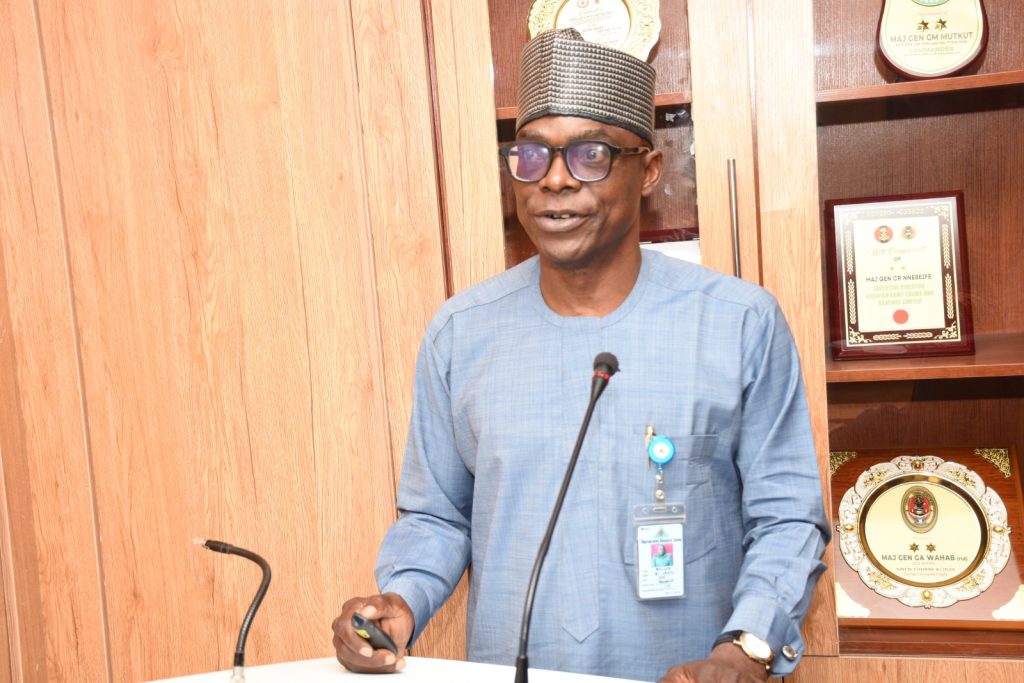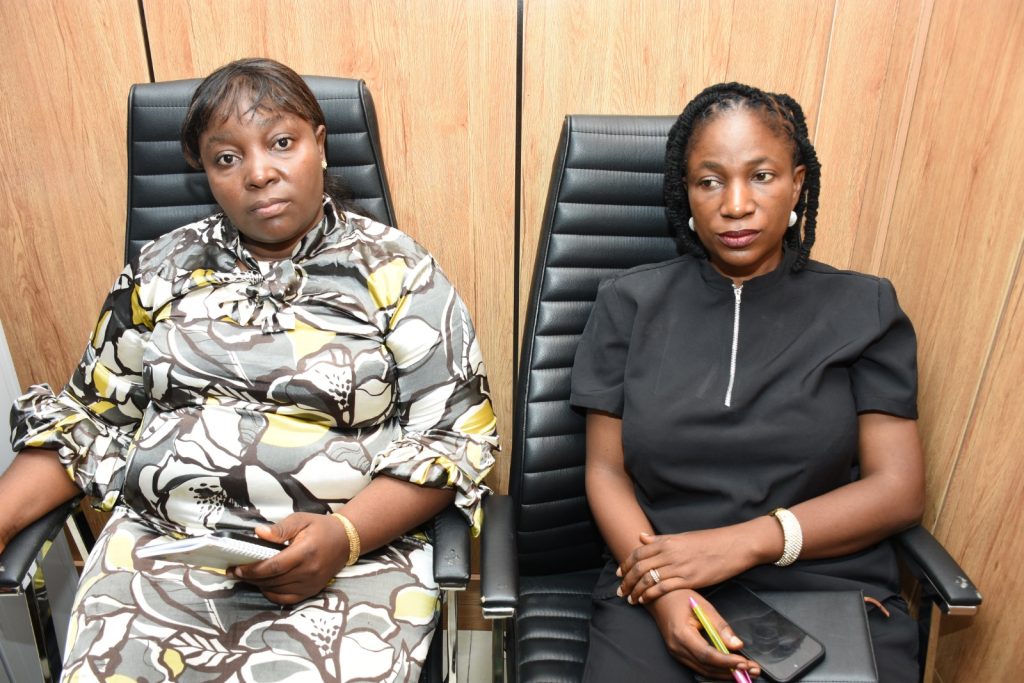Nigerian Army Resource Centre (NARC) Weekly Subject Experts’ Presentation was held at Hall C, TY Buratai Block, Abuja. The only presentation for the day was made by the Subject Experts on United Kingdom.
The presentation was made by Maj Gen MT Jinadu Subject experts on United Kingdom his presentation Centered on how Schools in England and Wales Are Urged to Teach Relationship Violence Prevention. On 1 May 2025, the British Broadcasting Corporation (BBC) reported that the UK Home Office has urged schools in England and Wales to integrate relationship violence prevention into their curriculum as part of a broader effort to combat youth violence and promote healthier relationships. This initiative aims to address rising concerns over domestic abuse and toxic relationship patterns among young people. The Home Office recommends using evidence-based resources to teach students about consent, coercive control, and respectful behavior. By educating early, the government hopes to prevent cycles of abuse and equip students with the skills to recognize and report unhealthy relationships. Charities and education advocates have welcomed the move, with Farah Nazeer, CEO of Women’s Aid, emphasizing its importance for creating a safer future. The Department for Education will work with schools, particularly at the secondary level, to expand access to trusted relationships and sex education materials. Teacher training will also be prioritized to help staff handle sensitive discussions around domestic violence. This policy follows past reviews that exposed gaps in relationship education, highlighting the need to go beyond traditional sex education to include emotional literacy and conflict resolution.
In his analysis and lessons for Nigeria, Maj Gen MT Jinadu pointed out that, In Nigeria, the increase in cases of relationship violence, Gender-Based Violence (GBV), and general moral decadence among youths underscores the urgent need to introduce relationship violence prevention and ethics education in primary and secondary schools. Knowledge and values necessary to build respectful, non-violent relationships and to contribute positively to society. Incorporating these subjects into school curricula would not only educate children on identifying and resisting abusive behavior, but also instill the values of empathy, respect, and non-violence. A 2023 UNICEF report revealed that a significant number of Nigerian children experience violence before the age of 18, with nearly 6 out of 10 children experiencing some form of physical, sexual, and emotional violence, whether at home, school, or in the community. This indicates that violence is not only prevalent but also normalized in many settings that should be protective. Teaching violence prevention and ethics early on can help break this cycle by building resilience, awareness, and strong moral values.
Furthermore, this education could serve as a bridge to dismantle deeply ingrained cultural norms that often justify or downplay abuse, particularly against women and girls. In 2024 alone, the Nigeria Police Force recorded 17,415 cases of gender violence, including 4,036 instances of defilement and rape, and 2,555 cases of child abuse. Despite these alarming numbers, only 2,758 convictions were secured, highlighting systemic challenges in addressing GBV effectively. Furthermore, over 13 million Nigerian students have reportedly suffered violence in educational settings, with 7 million girls and 6 million boys experiencing abuse from teachers or classmates (Vanguard News, 2024).
He recommended that, The Federal Ministry of Education, Ministry of Women Affairs and the Nigerian Police Force should collaborate to develop age-appropriate content on relationship ethics and conflict resolution.





























